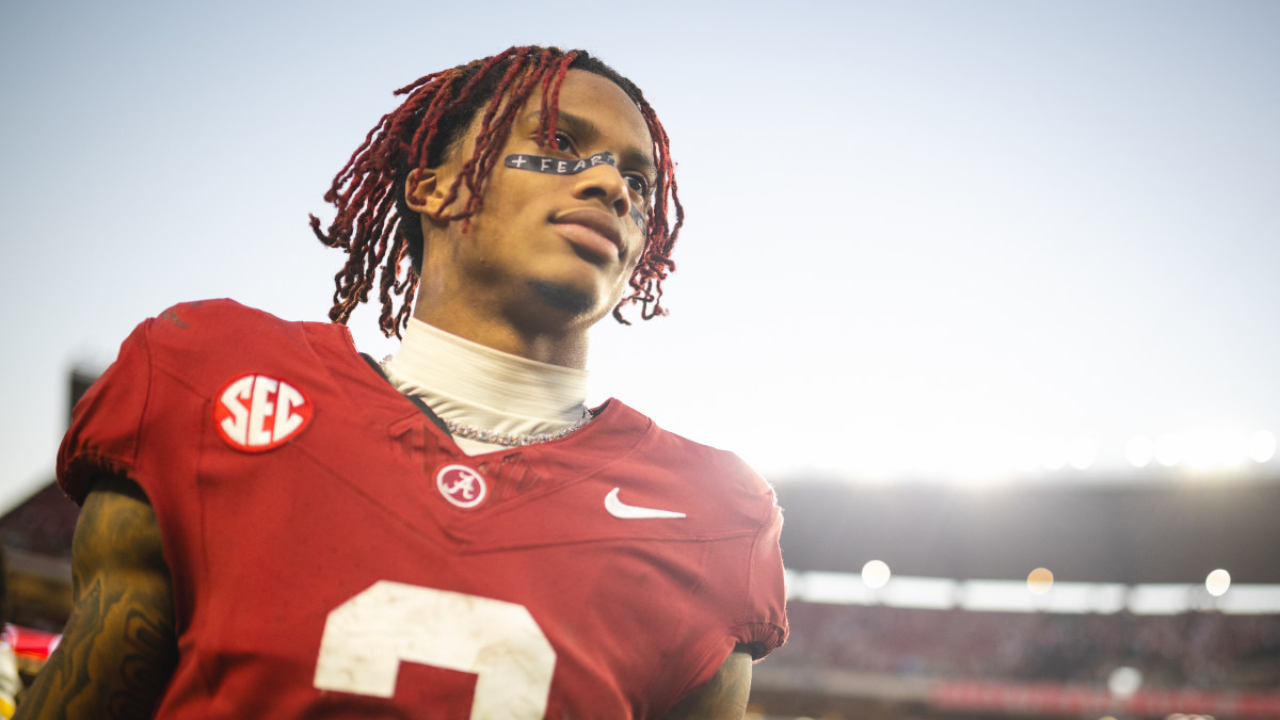A former University of Alabama running back has made a big career move after transferring under the Name, Image, and Likeness (NIL) rules. While many expected him to keep chasing his football dream, he’s decided to walk away from the sport and try something completely different.
Justin Haynes, who once played as a running back for Alabama, entered the NCAA transfer portal after limited playing time with the Crimson Tide.
Though he had shown promise as a four-star recruit, his time on the field was short and didn’t lead to major opportunities. With competition in Alabama’s running back group and fewer chances to prove himself, he chose to explore other options.
After entering the transfer portal, Haynes eventually moved to Georgia State University, a move that some thought would give him more playing time.
But the biggest surprise came when he revealed that he would not be continuing with football at all. Instead, Haynes is now pursuing a different career altogether, one outside the world of sports.
While he hasn’t officially announced every detail of his new direction, Haynes is believed to be focusing on business opportunities, possibly tied to NIL-related ventures.
In recent years, college athletes have been able to benefit from NIL policies, which allow them to make money through sponsorships, merchandise, and branding deals. This has changed how many student-athletes view their future.
Haynes is not the first player to shift away from football after entering the NIL space, but his move has caught attention because of the contrast between his early football success and his sudden change in direction.
Many fans remember his high school highlights, where he dominated games and was seen as a future star. But college football is a different level, and sometimes the path to success takes unexpected turns.
For Haynes, this change may offer more stability and personal fulfillment. Instead of trying to push through the intense physical and mental challenges of the sport, he’s now choosing a path that may offer him more control and long-term success.
Supporters of NIL policies have pointed out that decisions like Haynes’ show how athletes now have more power to shape their futures.
In the past, players often had to stick with football or other sports in the hope of going professional, even when the odds were against them. Now, with NIL income and entrepreneurial freedom, young athletes can step back and think about what’s really best for them.
There’s also been a lot of debate about whether NIL opportunities are distracting players or giving them more chances to grow. Haynes’ situation might highlight the positive side, where someone recognizes that their heart is no longer in the sport and they feel confident enough, thanks to NIL, to build something different.
Fans have had mixed reactions. Some are disappointed because they wanted to see more of Haynes on the field, especially after his exciting high school career. Others are supportive, praising him for being brave enough to change course. On social media, many users commented that it takes courage to give up a dream when it no longer feels right and to try something new instead.
For the Alabama football program, this is another reminder of how quickly things can change in the NIL era. Recruiting, player development, and retention are all being affected by the new system. Coaches must now think not only about playing time and training, but also about how to guide athletes through these personal and professional decisions.
Haynes hasn’t shared a complete breakdown of his next steps, but some reports suggest that he’s looking into social media branding and online business ventures. Whether or not he returns to football in the future, for now, his focus is somewhere else.
As the college sports world continues to adjust to the NIL landscape, stories like Haynes’ will likely become more common. Not every athlete will follow the same path, and the definition of success is changing.
This shift from being a top recruit to stepping away from football completely is a powerful reminder that life after sports is just as important, and with the support of NIL, athletes are starting to write their own rules.






